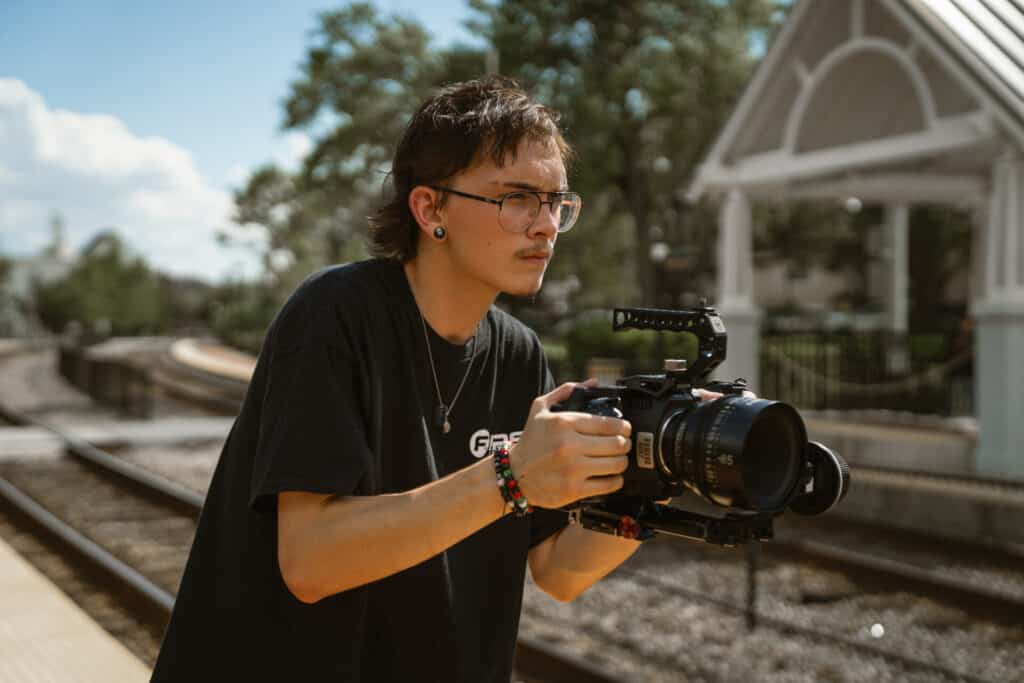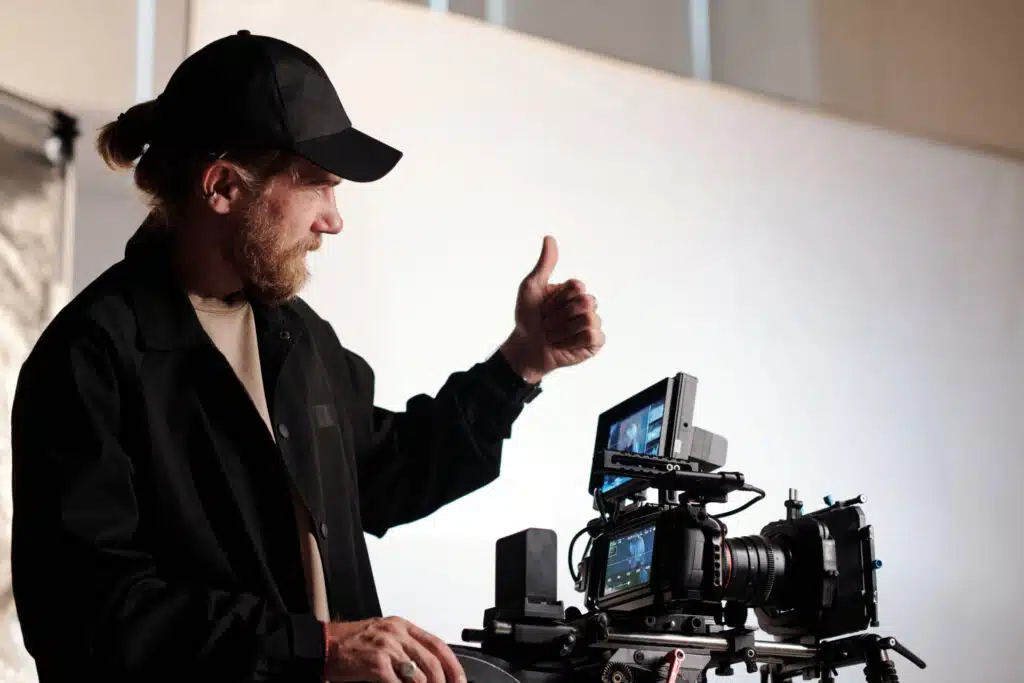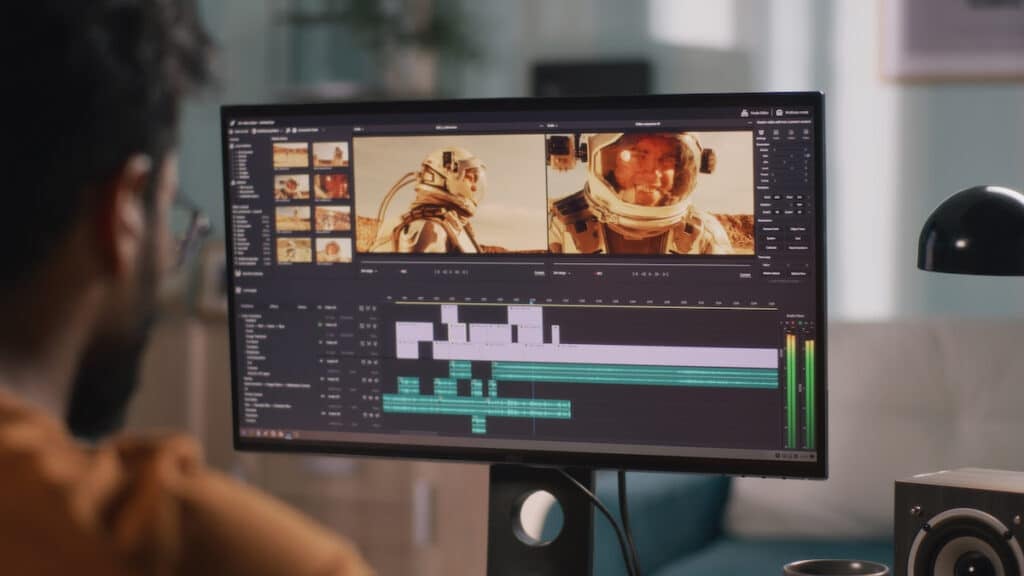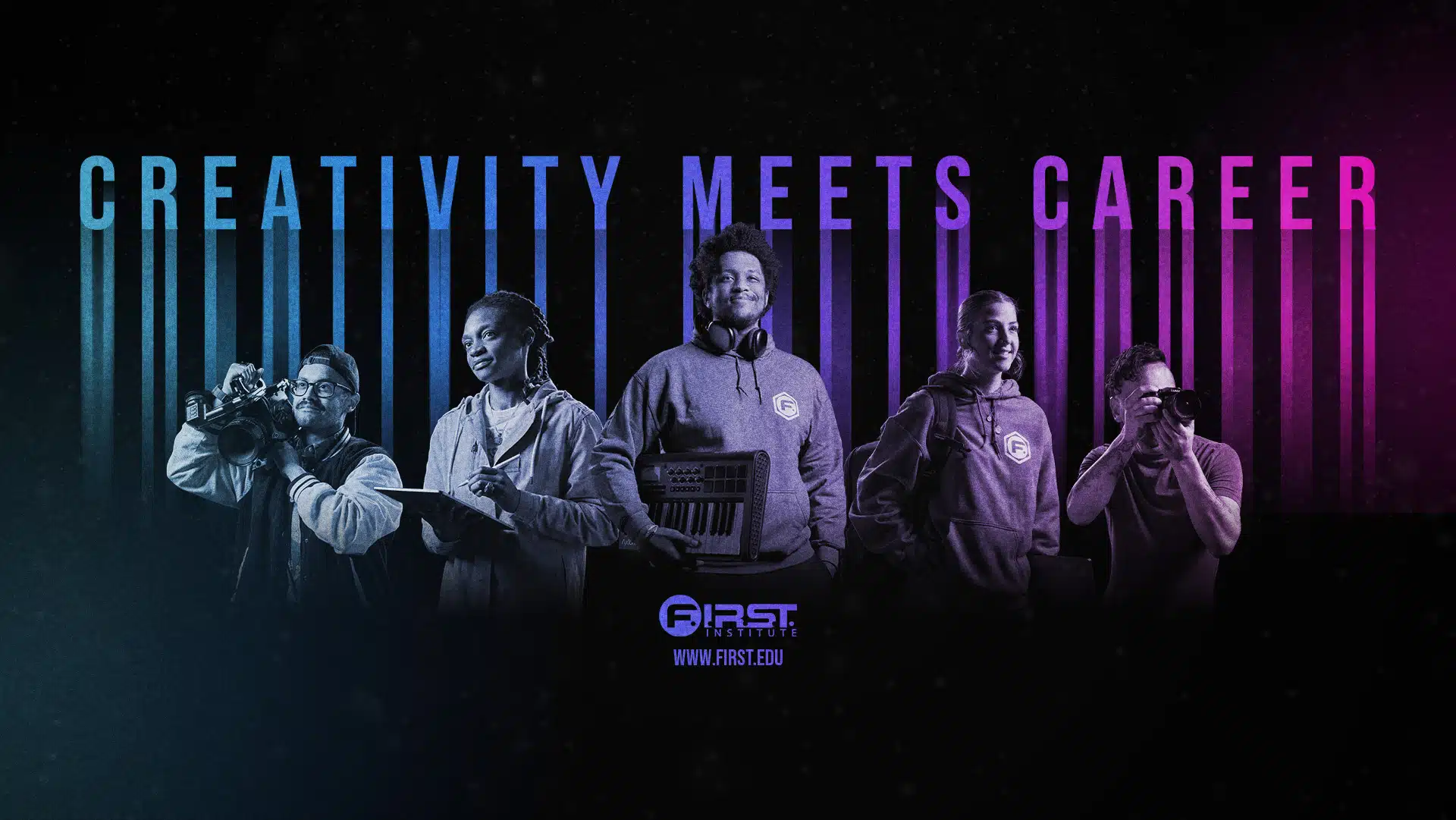The glitzy allure of the silver screen, the roar of an audience during a film premiere, and the heart-thumping beats of an action-packed scene. Sounds magical, right? But behind these goosebumps-evoking moments lies the grit, determination, and sheer tenacity of the filmmaker.
Before you start writing your Oscar speech, let’s dive deep into understanding what a filmmaker does and how our team at F.I.R.S.T. Institute can help unlock your inner auteur. Here’s a quick spoiler – it’s not all red carpets and champagne, but often way more rewarding than a golden statue!
The Essence of a Filmmaker
At the heart of every captivating movie or jaw-dropping TV series is the filmmaker. They are not just the brains behind the operation, but the beating heart. With an unyielding passion for storytelling, filmmakers transport audiences to new worlds, evoke a spectrum of emotions, and often challenge societal norms. They see the world through a unique lens – one that seeks out stories in the most mundane moments and turns them into cinematic gold.
Yet, being a filmmaker isn’t just about creativity and vision. It’s a balance of artistry with leadership, of imagination with execution. They are the thread that stitches together the various elements of a production, ensuring that every department, from acting to set design, aligns with a singular, cohesive vision. While the accolades often go to the stars on screen, it’s the filmmaker’s grit and determination behind the scenes that transforms a script’s pages into unforgettable scenes on the silver screen.
The Grit Behind the Glam
- Pre-production: A lot about what a filmmaker does begins with the preparation work behind a project. This is where the real magic starts. Filmmakers collaborate with screenwriters (often debating over endless cups of coffee), visualize the storyline, and select actors.
- Lights, Camera, Action!: On-set, filmmakers are the captains of the ship, battling storms of unexpected challenges and stakeholders breathing down their necks. Directing isn’t just yelling “action” or “cut.” It’s about guiding actors and creating a space where they feel free to do their best work. It’s ensuring the cinematographer catches that perfect glint in the hero’s eye. And, of course, managing a crew that’s larger than a celebrity wedding guest list.
- Post-Production: Thought the director’s chair was just on-set? Think again. Filmmakers work tirelessly with editors, ensuring every frame tells the story just right. From reviewing CGI dragons to selecting that melancholic track for a breakup scene, their vision persists.
Learn the Tricks of the Trade
Look, while raw talent is excellent, it’s like an uncut diamond. To truly shine in the world of filmmaking, you might want to consider exploring a video production school like F.I.R.S.T. Institute. We offer on-site and online options, so you’re not restricted to four walls.
For instance, F.I.R.S.T. Institute’s Digital Filmmaking and Video Production program isn’t just another course – it’s a launchpad for your creative career. Here, you can connect with industry maestros and get hands-on experience with filmmaking technology.
We do our best to marry cutting-edge technology with local networking opportunities and practical skills that enhance your resume. Many of our alumni go from the graduation stage to immediately starting new projects that become TV shows, streaming success stories, marketing genius, and feature films.
Gear Up with Must-Have Skills
Screenwriting:
The foundation of any great film or show lies in its screenplay. Screenwriting is much more than just penning down dialogues. It’s about creating a world, its characters, and a narrative that holds the audience captive. This art demands an understanding of pacing, character development, and the unique challenges of visual storytelling. As a filmmaker, having a grip on screenwriting equips you with the tools to visualize the final product even before the first scene is shot.
Cinematography:
Cinematography is more than just “shooting” scenes—it’s the art of visual storytelling. You have to balance how every single shot is going to be framed, what lighting will bring out the feeling you are hoping to achieve, and how the camera movement can evoke different emotions, creating tension and providing a fresh perspective to your story. Cinematographers are a unique breed that paints stories with light and shadow. Aspiring filmmakers should appreciate this craft, as it shapes the very look and feel of the final product.
Acting:
Every character that is brought to life on screen and lives in the hearts and minds of audiences begins through the unique perspective of an actor’s interpretation and dedication. Understanding acting is pivotal for filmmakers. This is a challenging craft that you must learn more about to best elicit memorable performances and communicate effectively through your work. It’s not just about dramatic monologues or teary-eyed performances. This is the art of subtlety, authenticity, and the myriad of emotions that make characters relatable. When filmmakers grasp the intricacies of acting, they can sculpt scenes that resonate deeply with viewers.
Editing:
Often dubbed the “final rewrite,” editing is where all the pieces come together. A big reason to study what a filmmaker does involves the cutting room floor (or digital studio in today’s world). It’s the rhythmic dance of cuts, transitions, and sequences that determine a film’s pacing and narrative flow. An editor doesn’t just assemble clips. Every single decision dictates the emotional journey of the audience, choosing which moments to highlight and which to let rest in the blooper reel or extra features. For filmmakers, understanding editing means having the final say in the story’s delivery.
Director:
Now we come to the big chair. It is the place where a good portion of dreamers want to end up in their filmmaking careers. The director is the ship’s captain, steering the vast ocean of film production. They breathe life into the script, making critical decisions that shape the film’s visual and emotional landscape. It’s the director’s vision that serves as the North Star for every department, ensuring coherence and unity in the final product. Balancing leadership, creativity, and collaboration, directors are the linchpins holding the intricate filmmaking machinery together. If you want to know what a filmmaker does – you must learn about directing.
Soft Skills – Your Unsung Allies
While you’re honing your technical skills at a film school or devouring online filmmaking courses, remember that filmmaking is also about people. Effective communication, adaptability, and a sprinkle of leadership can make your filmmaking journey smoother than a Steadicam shot.
At F.I.R.S.T. Institute, we work hard to instill the soft skills you need to survive and thrive in the filmmaking industry. You can learn more about how we leverage these skills in our article “Personality Traits of the Best Film Directors.”
Dive Into the Filmmaking Frenzy with F.I.R.S.T.
If you’re truly passionate about crafting stories, about adding your touch to the cinematic universe, F.I.R.S.T. Institute is your ideal partner.
In less than a year, you could be industry ready. Forget general education classes; focus solely on filmmaking and immerse yourself in hands-on training. Whether you attend classes on-campus or online, you’ll have the chance to connect and collaborate with active industry professionals and like-minded peers. Why just dream when you can create?
So, for those of you who’ve always felt that electric pull towards the world of cinema, it’s time. Unleash your creativity and take a campus or virtual tour of our Digital Filmmaking & Video Production program remember that every film giant started with a dream just like yours.






